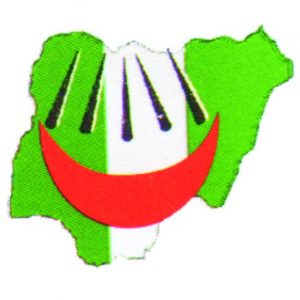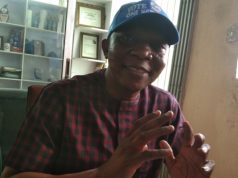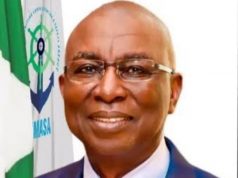As he ameliorate piracy to nearest minimum
By Omenihu Alfred fibmn
The performance of Dr Bashir Jamoh, the DG of Nigeria Maritime and safety Agency (NIMASA) has continued to make wave on the news desks of various platforms. Under his watch, the Agency continues to improve its port and flag state functions which is the core of maritime safety. The performance of the Agency in this regard in the last 4 years is highlighted thus: 2017 recorded 525 PSI, 2018 recorded 659 accounting for 38% increament. 2019 recorded 725 PSI accounting for 10% increament while 2020 recorded 510 PSI which nose dived to 29.65 decrease.
Port State Inspection
Total port state inspection in 2019 was 726 vessels of the 5,035 vessels calls which represents 10% improvement from the preceding year and 14.42% of the of total ship call. This is however short of 15% requirement under IMO by 0.8% of which we are working hard to surpass.
Total port state inspections in 2020 was 510 of 4,728 vessel calls. (COVID-19 lockdown impacted negatively on the Port State Inspections) In 2018, the FSI stood at 1,737, in 2019 it increased by 49% at the the figure of 2,580, but in 2020 it dropped by 13% to 2,244.
In 2019, the Agency performed a total of 2,580 flag state inspections representing 2,123 renewal inspections, 276 condition survey and 181 Random Flag State Surveys. This showed a 49% increase from the 1,737 Total Flag State Inspections carried out in 2018 comprising 1,241 Flag State Renewal Inspections, 381 Condition Surveys and 115 Random Flag State Surveys. However, the decrease in 2020 is attributed to the impact of COVID-19 Pandemic.
In another development, it is unfortunate that, the Agency recorded 22 marine incidents in 2019 and 21 in 2018. Investigations were carried out while some are still on-going.
Furthermore, NIMASA has put in tremendous efforts to mitigate the tide of maritime insecurity in Nigeria and the Gulf of Guinea through several maritime domain awareness interventions and collaborative efforts, for instance, Passage of the Suppression of Piracy and other Maritime Offences Bill, Establishment of integrated national maritime surveillance and security infrastructure, International Ship and Port Facility Security (Code) Implementation: The implementation of the International Ship and Port Facility Security (ISPS) Code has steadily impacted on the level of security in the nation’s port areas and facilities.
Resuscitation of the Global Maritime Distress and Safety System(GMDSS) Equipment, The Regional Maritime Awareness Capacity (RMAC) Centre, International collaboration: NIMASA is currently engaging international stakeholders, including BIMCO, INTERTANKO, INTERCARGO, International Chamber of Shipping (ICS) and Oil Companies International Maritime Forum-OCIMF, under the auspices of NIMASA/Industry Maritime Security Work Group (NIWG) to entrench coordinated response to piracy attacks and Institutionalization of Collaboration with National Authorities: The Agency has spearheaded the institutionalization of the collaboration between her and other frontline maritime agencies for improved maritime safety and security and efficient port operations.
Human Capacity Development is another positive step in the right direction that agency has paid and still paying particular attention. We all are aware of the, Statutory financial contribution to Maritime Academy, Oron and the Nigerian Seafarers Development Program (NSDP): 40/60 ratio
50/50 ratio 100%.
Currently, the Agency has trained over 2600 Nigerian Seafarers in various credible maritime institutions UK, Egypt, Philippine, Malaysia, etc. Recently, the Agency secured the placement of over 400 cadets onboard ships for the mandatory SEA-TIME training to make them globally competitive and employable. NIMASA also sent some of its staff on long term training abroad to build internal capacities in various aspects of the maritime industry at the prestigious World Maritime University.
INDIGENOUS SHIPPING CAPACITY DEVELOPMENT
Procurement of the 5th largest modular floating dockyard in Africa to reduce the cost of ship repairs and maintenance
This milestone achievement comes under a unique Fund known as the Cabotage Vessel Financing Fund (CVFF), designed to provide financial assistance to Nigerian Operators in domestic coastal shipping to own vessels and enhance their competitiveness.
Fiscal and Monetary Policy Initiatives: We have continued our engagement with the MDAs to entrench an appropriate fiscal and monetary policy initiatives to pave way for the competitive participation of indigenous operators in shipping activities in Nigeria. These include but not limited to:
• A push for the change in terms of trade from FOB to CIF for the affreightment of crude oil (NNPC) • Single digit interest rate for the maritime sector (CBN/NEXIM BANK/AFRIEXIM)
• Concessionalforeignexchangerateforshipacquisition(CBN)
• EngagementwithOfficeoftheVicePresident/EconomicManagementTeam
We continued our engagement with state governments to buy into our cargo support initiative aimed at creating cargo pool for affreightment by indigenous operators.
Ship Tonnage Growth: Aggressive repositioning of the Nigerian Ship Registration Office (NSRO)
The Nigerian Ship Registration Office recorded 13.8% tonnage growth from 2018 to 2019.
This trajectory of growth was negatively impacted by the global covid-19 pandemic.
However, the Nigerian Ship Registry ranks second in tonnage measurement in Africa after Liberia which operates an open and more flexible registry.
Remodeling and commissioning of NIMASA Knowledge Centre E-Library
The facility is open to staff, students/researchers and external stakeholders/maritime operators to increase the knowledge base of the
Nigerian Maritime Sector
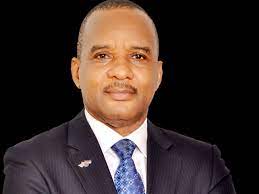 SPECIAL INTERVENTION: COVID-19 RESPONSE AND CSR
SPECIAL INTERVENTION: COVID-19 RESPONSE AND CSR
The Executive Management of NIMASA recognized from the outset the significant impact of the Corona Virus (COVID-19) Pandemic on the Transport Sector in Particular and the Global socio-economic activities in general, hence set up a multi-disciplinary Committee within the Agency to provide an informed risk assessment with appropriate responses.
A major intervention of the Agency in ensuring the continued flow of trade was the declaration of Seafarers as KEY WORKERS to facilitate vital crew changes and excuse duty. Nigeria was among the first maritime nations to declare such and was commended by the IMO.
Corporate Social Responsibility support to Federal and State government by the following donations to Federal & State authorities:
A. Cash donations of 30 Million Naira (N30,000,000.00) to the Federal Government Committee on COVID-19 Intervention
20 Million Naira (N20,000,000.00) cash donation to the Lagos State COVID-19 Intervention Task Force
B. Provided human capital/personnel support in the following areas:
Medical Personn opel Drivers
Logistic officers
C. Deployment of the Agency’s Fire brigade trucks to fumigate Apapa and its environs.
LOGISTICS SUPPORT IN THE FIGHT AGAINST COVID-19 is as follows,Abuja – one 36- Seater Coaster Bus, one 16-Seater coaster bus, and one Ambulance. Lagos – one 36- Seater Coaster Bus, one 16-Seater coaster bus, one Ambulance, and two fast intervention Marine Vessels. River state – one 36- Seater Coaster Bus,, one Ambulance and two fast intervention Marine( Onne and Portharcourt). Delta -one 16 seater coaster bus, one Ambulance, one fast intervention Marine. Cross River – intervention Marine( Onne and Portharcourt). Delta – one 16 seater coaster bus ( PSC to Source), and one fast intervention Marine. Kaduna – two 16 seater coaster bus, one Ambulance.
SPECIAL INTERVENTION: CSR FOR FLOOD VICTIMS AND IDP CAMPS
The Agency presented relief items to victims of flood disaster across the nation. Also, internally displaced persons as a result of insurgency were not left out of Agency’s Corporate Social Responsibility. Among the 20 states covered across the 6 geo-political zones are:
Kaduna State, Kano State, Cross River State, Delta State, Lagos State Niger State, Benue State, Ogun State, and. Ondo State
COMMENDATIONS
The IMO in December, 2020 applauded our efforts in the fight against piracy in the Gulf of Guinea Region
The Specialized Organ of the United Nation had earlier support our action declaring Seafarers as key workers to facilitate crew changes during the COVID-19 induced international lockdown.
Recently, the IMO gave institutional backing to NIMASA’s Marine Litter Action Plan. These and many more are evident of our collaboration with the IMO.
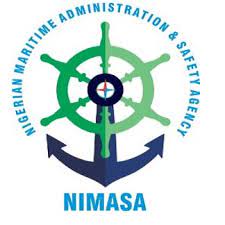
The global shipping and economic climate was greatly impacted by the following in 2020 all through 2021: COVID-19, Lockdown, Disruption in the global supply chain; and Slow down of the economic activities across the globe.
Talking of Maritime Safety: Flag State Implementation (FSO) – Vessels inspected/surveyed in accordance with the safety requirements of the MSA 2007
Conduct of Condition survey for Flag Registration
Comparing the number of vessels surveyed for flag registration relative to the previous year, it can be observed that the 2021 figure (489 vessels) is 43.6% higher than the total number of condition surveys carried out in 2020 (276 vessels).
Port State Control (PCS) 229 foreign vessels boarded to ensure that such vessels maintained safety/pollution standard while in our ports and waters.
Port State Control Implementation
Comparing the number of vessels boarded relative to the previous year, it can be observed that the 2021 figure (673 vessels) is 24.2% higher than the total number of inspections carried out in 2020 (510 vessels).
On Examination and Certification, there is total exam conducted for officers at various capacity and certification for year 2020 and 2021
OFFICERS 2021: Total number of examination conducted 829
Total candidate passed and certificated 264, forming a percentage of 32%
Total candidate failed 565, forming a percentage of 68%
Total certificate revalidated 2021: 246 certificates.
OFFICERS IN 2020
Total number of examination conducted 610
Total candidate passed and certificated 251, forming a percentage of 41%
Total candidate failed 359, forming a percentage of 59%
Total certificate revalidated 2020: 132 certificates.
EXAMINATION RATINGS IN 2020
Total number of examination conducted 1,251
Total candidate passed and certificated 926, forming a percentage of 74%
Total candidate failed 325, forming a percentage of 26%
EXAMINATION RATINGS IN 2020
Total number of examination conducted 1,327
Total candidate passed and certificated 990, forming a percentage of 74%
Total candidate failed 337, forming a percentage of 26%
Online Seafarers Certificate of Competency (CoC) Verification Platform reactivated
The project has drastically reduced forgery of Nigerian certificates and enhance the employment of Nigerian Seafarers in the maritime sector.
Enforcement of Safety Regulations on Barges and Tug Boatds (Operation Sting Ray)
ISO 9001 Quality Assurance Certification for the operation of the maritime Safety Department Approval of ISO 9001:2015 Quality Management System for the Maritime Safety and Seafarers Standard Department by Bureau Veritas (BV) in April 2020.
Revival of the Global Maritime Distress and Safety System (GMDSS) equipment – Necessary for sending alert in an emergency. The GMDSS is to ensure safety of life at sea.
Marine Accident Investigation Data/Information
Marine Pollution Prevention and Control: Marine Environment Management
Nigeria has entered into MoU with Maritime Transport Coordination Centre (MTCC) on Climate Change for Africa to commence activities towards ensuring GHG emission reduction in the maritime sector with emphasis on achieving 0.5% Sulphur Oxide (SO2) in Bunker fuel oil.
– Awareness creation
– Establishment of bunker (fuel oil) supply register
– Accreditation of laboratories for testing bunker oil
– Capacity building on emission of reduction; and
– Establishment of Compliance monitoring and Enforcement Team (CMET)
IOPC 92
– Produced manual for the admissibility of claims under the fund.
– The manual is to contain the price index for determining the quatum of claims for settlement in case of oil pollution.
Update on the Trinity Spirit FPSO
Maritime Security:
Deep Blue Project:
The Deep Blue Project was flagged off by His Excellency, President Muhammadu Buhari on Friday, 21st May, 2021.
The Agency has taken delivery of key assets of the Deep Blue Project including:
Two Special Mission Vessels (SMVs)
Seventeen Fast Interceptor Boats (FIBs)
Two Unmanned Air Vehicles (UAVs)
Sixteen Armoured Vehicles
Some of these assets have been deployed to the Nigerian Navy for its operational use.
The Regional Maritime Awareness Capacity (RMAC) Centre
Provision of the Regional Maritime Awareness Capacity (RMAC) Centre Kirikiri by the US Navy Upgraded to SEA VISION to allow for monitoring of vessels along the West and Central African region.
NIMASA/Industry Working Group
International collaboration among major international stakeholders in the maritime/shipping sector.
To entrench coordinated response to piracy and other criminalities on the Nigerian waters and prompt reportage and escalation of marine incidences to where action is most expected and to provide navigational advisory to mariners.
The Maritime Security & Intelligence Unit
For intelligence and information gathering and sharing that can help to stop piracy.
Collaboration with Security Agencies
At the strategic level, the Agency ensures a close liaison with the offices of the NSA , CNS, Chief of Air Staff, Chief of Army Staff and the IGP.
The Agency has played a pivotal role in the institutionalization of the collaboration between her and other government agencies for improved maritime security and safety.
ISPS
Total number of currently operational onshore facilities in the ISPS unit is Ninety-eight (98) divided into six maritime zones.
For ease of administration because of their locations & accessibility, some zones are further subdivided.
In 2020 VIEs carried out as detailed below for the four (4) quarters
Lagos subdivisions – Apapa – 9, Kirikiri – 12, Ijora & Ijegun – 8 in first & second quarter & 11 in last quarter, Tincan – 8,
Port Harcourt – 11, Calabar – 9, Onne – 9, Eket –, Warri – 16
Total 87 (Eighty–Seven)
In 2021 VIEs carried out as detailed below for the four (4) quarters
Lagos subdivisions – Apapa – 10, Kirikiri – 12, Ijora – 7, Ijegun – 7, Tincan – 8
Port Harcourt – 13, Calabar – 8, Onne – 10, Eket – 3, Warri – 17
Total 96 (Ninety–Six)
Shipping Promotion and Capacity Development
*Shipping Promotion
– Concessions to boost indigenous ownership
-Strenghten enforcement of Cabotage to boost local participation
Capacty Development
Human – Natural Seafarers Development Programme (NSDP) – Training of over 2,600 Nigerian Seafarers in various maritime institutions worldwide and a good number of them who have completed their programmes are no gainfully employed onboard vessels.
Assets – Approval for CVFF disbursement to assist in vessel acquisition by indigenous Nigerian Shipowners – Most Nigerian Operators in domestic coastal shipping now own vessels and enhance their competitiveness.
Learning Infrastructure Upgrade includes, Completion of the renovation and furnishing of the conventional library, Digitization of the convention library books/other resource materials and Renewal of e-library management software:
2022 in Focus
– Strenghtening our maritime safety and security enforcement mechanisms
– Organise a stakeholders’ engagement towards harnessing the potentials of a blue economy
– Enhancerevenue for increased contribution to the consolidated revenue fund
– Movementof the Agency’s Headquarters to its newly acquired building in Victoria Island.
– Operationalization of the floating dock
– Establishment of regional maritime safety and security training centre
– Build regional maritime search and rescue clinic
– Resuscitate Lokoja office
– Construction of NIMASA zonal offices (Central zone and Eastern zone)


